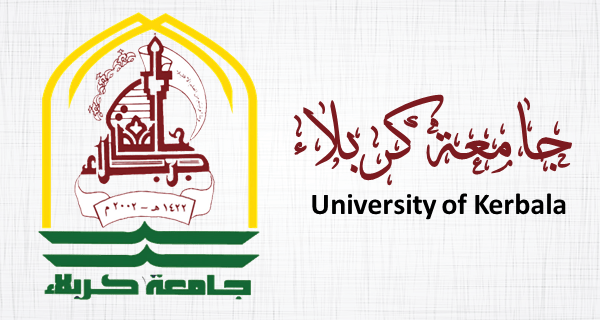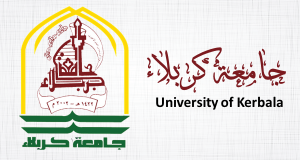Dr. Bahaa Aldeen Abdalrahman Hadi
Lecturer /college of medicine
Abstract:
In Iraq, the Holy Karbala Governorate is both agriculturally and religiously significant. It faces several challenges concerning agriculture and water resources, which are becoming more serious. Climate change and problems caused by dams further up the rivers that flow into the region mean there needs to be more water for people’s needs; at the same time, lousy irrigation methods are making things worse. This paper looks at how all these factors interact in an area where there is a great need and scarcity of this vital liquid: it underlines just how pressing the issues are. Against this backdrop, it considers both old and new ways in which humans have tried to manage water supplies plus make use of them when carrying out activities such as farming.
Introduction:
Throughout history, many civilizations have depended on the Euphrates River, and today, it continues to be vital for the economy and society of the Holy Karbala Governorate. Agriculture is central to the area’s way of life, and irrigation from the Euphrates is essential for growing crops, supporting jobs, and ensuring enough food. But climate change plus poorly managed water supplies are putting this at risk – with potentially devastating effects (Al-Jawad et al., 2021). By looking at how all these factors interconnect, this paper will show why action has to be taken now if Karbala’s people are able to survive and thrive in future decades!
Historical Context of Water Management in Karbala:
Karbala’s fate has been linked to the Euphrates River for thousands of years. The stream allowed humans to reside there and grow food, influencing how history unfolded in the area. Centuries-old irrigation systems – including channels and qanats – were created as people learned how to control its waters; these networks enabled them to develop a productive agricultural sector. But things changed dramatically during the 1900s: Turkey and Syria began constructing big dams along the river’s upper reaches, meaning less water flowed downstream into Iraq (Farhadi et al. 2020). This shift has had major effects on Karbala’s hydrology, and it has increased both population numbers and farmland acreage, which, since the 20th century, have skyrocketed.
Climate Change and its Impact on Water Resources
The water challenges in Karbala are getting worse because of climate change. Higher temperatures mean that reservoirs and rivers are drying up faster – there is more evaporation. At the same time, when rain does fall, it is often so intense that it causes floods. Then, there are periods when it does not rain for weeks (FAO 2018). All these things have always made managing water supplies difficult in this part of Iraq; now, there are even more problems to contend with if you are a farmer or policymaker wanting to plan for the future.
Impact of Water Scarcity on Agriculture:
Agriculture in Karbala is significantly affected by water scarcity. When there isn’t enough water available, farmers can’t irrigate their crops properly, so they grow less food and make less money. To deal with this, some growers switch to plants needing less water or cultivating smaller areas. However, these adaptations may negatively affect livelihoods and food supplies (Ali et al., 2019). Another problem caused by a drop in river levels and/or too many people taking water out of the ground is that seawater starts to move into the land: if this happens, it damages fields and reduces how much produce they can grow. All these issues combined could mean that one of Iraq’s holiest cities finds itself unable to continue doing business in the same way – even though agriculture has always been central both to its economy and culture.
Sustainable Solutions for Water Resource Management:
Dealing with water issues in Karbala requires multiple actions and the adoption of sustainable water management practices. One critical step is to make irrigation more efficient so that less water is needed for farming. Introducing up-to-date methods like drip irrigation and sprinkler systems could cut water use while raising efficiency; losses could be reduced significantly (Jassim & Goff, 2006). It also means raising awareness among farmers about why saving water matters –- and getting them to grow crops that need less water, too, because they are drought-resistant: both things together help make usage sustainable.
Developing water infrastructure is crucial for boosting water storage capacity and upgrading water distribution networks. Building new reservoirs, restoring current canals, and using water-saving technologies can all help reduce the effects of drought and ensure there’s enough water to go around (Al-Ansari et al., 2017). If we plan our land use along with this kind of work, it may also stop us from taking so much water from wells that they run dry!
Promoting Climate Change Adaptation in Agriculture:
It is essential to build up resistance to climate change in the agricultural industry if individuals living in Karbala will be able to depend on having enough to eat and earn a living. According to the World Bank (2021), one way of doing this may be to encourage the use of climate-smart agricultural techniques like conservation tillage, crop rotation, and integrated pest management, all of which have been shown to boost crop yields as well as make them less susceptible to the negative impacts of a changing climate. Yet simply promoting such practices could never be enough: ongoing research and development that enables farmers to cultivate varieties that can withstand spells of dry weather or exceptionally high temperatures also needs supporting – and not just morally either!
Conclusion
Addressing the dual issues of water shortage and sustainable agriculture in Karbala requires a united front. It is vital to get government bodies, researchers, farmers, and residents working together if practical answers are to be found – and put into practice. Combining age-old wisdom with the latest scientific methods could offer valuable lessons on how best to manage water supplies. Meanwhile, everyone needs to understand more clearly why saving water is crucial and how they can help – not most minor- because the demand for this most precious resource has tripled over the last 50 years.
By investing in education and capacity-building initiatives, farmers can gain the tools they need to adapt to climate change while learning sustainable agricultural practices. If countries in the Euphrates River Basin work together more closely on managing water supplies (which don’t respect borders), they will be better equipped to deal with them. By taking coordinated steps that look at the big picture, Karbala should be able to find ways for agriculture, water, and climate concerns to support each other rather than conflict – so that everybody benefits both now and in the long term from an environment that thrives alongside people.
References:
Al-Ansari, N., Knutsson, S., & Pusch, R. (2017). Water resources management in Iraq: Current status and future prospects. Journal of Water Resources and Protection, 9(05), 553.
Al-Jawad, S. H., Al-Ansari, N., Knutsson, S., & Laue, J. (2021). Impact of climate change and upstream development on the water resources of the Euphrates River Basin in Iraq. Water, 13(11), 1529.
Ali, M. H., Jassim, S. Y., & Abdul-Amir, A. H. (2019). Impact of water scarcity on agriculture in Iraq: A review. Mesopotamian Journal of Agriculture, 47(4), 864-879.
FAO. (2018). The State of Food and Agriculture 2018. Migrating to reduce the impact of climate change on agriculture. Food and Agriculture Organization of the United Nations.
Farhadi, L., Felfelani, F., & Jarvie, H. P. (2020). Hydro-political implications of dam development in the Euphrates–Tigris River Basin. Water International, 45(1), 3-26.
Jassim, S. Y., & Goff, J. R. (2006). Irrigation in Iraq: Development and management. Agricultural Water Management, 82(1-2), 131-146.
World Bank. (2021). Climate-Smart Agriculture: Building Resilience to Climate Change in the Agricultural Sector. World Bank Group.
WHO. (2018). Climate change and health in the Eastern Mediterranean Region: WHO Regional Office for the Eastern Mediterranean.






























































